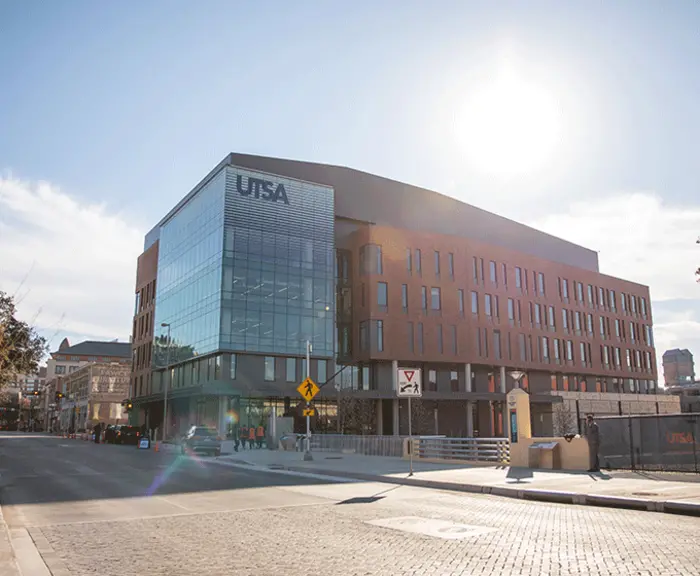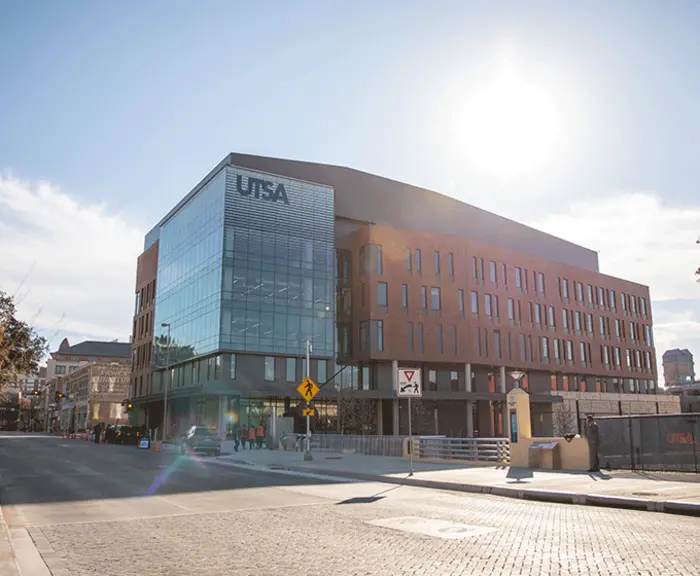UTSA has received a two-year, $300,000 grant from the National Science Foundation (NSF) to establish the National DigiFoundry (NDF), a consortium that has the potential to redefine the management of digital assets such as cryptocurrencies.

Credit: The University of Texas at San Antonio
UTSA has received a two-year, $300,000 grant from the National Science Foundation (NSF) to establish the National DigiFoundry (NDF), a consortium that has the potential to redefine the management of digital assets such as cryptocurrencies.
To develop the NDF, UTSA will create a new Decentralized Autonomous Organization (DAO), a national organization that promotes engagement and collaboration between the public and private sectors. At a time when digital assets, including cryptocurrencies, have surpassed a trillion dollars in market value, this collaboration is paramount, according to John Huggins, interim executive director of UTSA’s National Security Collaboration Center (NSCC).
“We are pleased to fund innovation and translation in a range of key technology areas, including digital assets,” said Anna Brady-Estevez, a program director within the NSF’s Small Business Innovation Research and Small Business Technology Transfer programs.
The NDF will collaboratively explore global standards and best practices for the use and exchange of digital assets. The organization will leverage blockchain technologies to establish work groups, publish digital asset industry recommendations and advance other NDF sponsored activities such as conferences and speaker series.
“This project will deliver long-term benefits. It has already attracted interest from diverse stakeholders, including multiple federal agencies, health care providers, military services, Web 3.0 companies, public transportation operators, investors and various entrepreneurial startups,” said Huggins. “This NSF grant will allow UTSA to partner in unique ways with universities, industry, government, nonprofits and national labs to innovate in the digital asset ecosystem.”
Current digital asset management systems pose several cybersecurity challenges. They are prone to decentralized notification attacks, multi-call transaction audits and risks associated with on-chain transaction verifications using multi-signature wallets.
The NDF is building a resilient framework that can adapt to the fast-paced digital asset market. Its solutions will include improved access for digital asset users, availability of cybersecurity experts and seamless access to customer feedback.
Managed by national subject matter experts, this “innovation sandbox” offers a controlled environment where researchers can collaborate, build value and mitigate risks. The NDF has established three inaugural work groups including climate chain disaster response, health care research publishing and secure information sharing.
This work is deeply aligned with the objectives of the U.S. Department of the Treasury.
“In line with the U.S. Department of the Treasury Strategic Objective 1.3, Economically Resilient Communities, we recognize the importance of supporting small businesses in combating climate change and building economic resilience,” said Melissa “Lisa” Oliva, deputy director/senior business advisor, Office of Small & Disadvantaged Business Utilization (OSDBU), U.S. Department of the Treasury. “One of our key initiatives in this regard is our Phase III Small Business Innovation Research Pilot Program. Through this program, we aim to foster a strong partnership between small businesses and academic institutions such as UTSA to leverage their collective expertise and resources to drive innovation and create a sustainable future.”
She added, “We welcome your involvement and invite you to join us in this collaborative journey. Together, we can drive innovation, create economic resiliency and make a lasting impact ‘Doing Better Together.’ This initiative supports the 50 States Initiative in its goal to us build economically resilient communities.”
The project will be led by the NSCC, Texas’ largest hub for government, university and industry partners in national security. This San Antonio-based ecosystem advances research and innovation in forensics, visualization, cybersecurity, data analytics, post-quantum cryptography, attack and threat modeling and mitigation, machine learning and artificial intelligence, and software, hardware and platform integrity.
UTSA’s national security leaders expect the NDF’s influence to span beyond the financial and cryptocurrency sectors. Applications include crucial areas such as health care, advanced manufacturing, supply chain management, energy, transportation, and Web 3.0 related products and services such as blockchain technologies and token-based economics, added Huggins, who will serve as the principal investigator of the NDF project, along with co-PI Charles ‘Coz’ Cosnowski, the NSCC’s research lead.
UTSA is collaborating with Forward Edge-AI Inc, a member of the NSCC and the first official member of the NDF. The San Antonio-based firm specializes in artificial intelligence and cybersecurity solutions to meet complex public safety and national security challenges.
“The NDF represents an exciting new model for quickly transitioning new digital asset technologies into practical, valuable and innovative use cases,” said Eric Adolphe, CEO for Forward Edge-AI.
Kevin L. Jackson, vice president of digital assets for the firm, added, “UTSA has created a center of excellence for the secure use of digital assets, and I’m amazed by how fast the NDF is growing. We really appreciate the enthusiasm and generosity of all our members.”
The NDF ‘s first annual meeting is planned for January 2024 at UTSA’s San Pedro I facility in the heart of downtown San Antonio.





